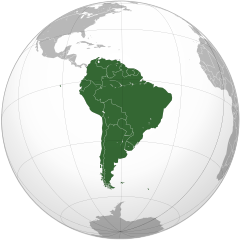In a world replete with unfolding environmental challenges, the resurgence of America within the Paris Climate Agreement serves as a pivotal moment—a renaissance of diplomatic resolve akin to the phoenix rising from the ashes. This phenomenon transcends mere political maneuvering; it echoes the principles propagated by the Bahá’í teachings, which emphasize the interconnectedness of humanity and the sanctity of the Earth.
The Paris Climate Agreement, established with the profound intention of combating climate change, embodies a collective vision for a sustainable future. Within this framework lies a critical realization of humanity’s shared responsibility to nurture and protect the planet. As the United States reengages with this international covenant, it prompts a broader reflection on the Bahá’í perspective regarding global stewardship and cooperative action.
Rooted in the teachings of Bahá’u’lláh, the founder of the Bahá’í Faith, is a call for unity—an exhortation that underscores the importance of collective action in addressing global challenges. The Bahá’í principle of “the oneness of humanity” resonates profoundly in the context of climate action. It serves as a reminder that environmental sustainability is not merely a national concern but a global imperative, transcending geographic boundaries and cultural differences.
America’s decision to reenter the Paris Climate Agreement can be likened to a lighthouse illuminating a treacherous coastline. It presents an opportunity for renewed leadership and commitment from one of the world’s most influential nations. This aligns with the Bahá’í tenets of consultation and collaboration, wherein diverse voices converge to form a consensus aimed at resolving pressing issues. Such an approach fosters solidarity among nations, strengthening the collective resolve against climate change.
Moreover, the Bahá’í belief in the intrinsic value of nature parallels the global narrative surrounding environmental protection. The agreement emphasizes the need for a balanced relationship between humanity and the natural world. By rejoining this pact, America signifies its acknowledgment of this profound connection and the need to value and respect the planet as an extension of the human family.
In examining the implications of this reinstatement, one may consider the metaphor of a delicate ecosystem. Each organism, from the diminutive microorganism to the majestic blue whale, plays a vital role in maintaining equilibrium. Similarly, nations must act as responsible stewards to safeguard the delicate balance of the Earth’s climate. The Bahá’í Faith advocates for this stewardship, emphasizing that humanity has a sacred obligation to protect the environment for future generations.
The repercussions of America’s renewed commitment extend beyond its borders; they reverberate throughout the international community. Other countries may feel invigorated to increase their own climate commitments, echoing Bahá’í ideals of collective action. America’s example can serve as a catalytic force, instigating a ripple effect of ambition and cooperation across the global landscape. The underlying principle is clear: when one nation makes a concerted effort towards sustainability, it inspires others to do the same.
Equally compelling is the notion of accountability and transparency, hallmarks of both the Paris Agreement and the Bahá’í teachings. America’s reengagement obligates it not only to fulfill its climate commitments, but also to transparently report its progress. This mirrors the Bahá’í principle of accountability, which posits that every individual and entity must take responsibility for their actions—particularly when those actions have far-reaching implications for the welfare of the planet.
Furthermore, the teachings of the Bahá’í Faith extol the virtues of justice and equity, principles that are critically relevant in the context of climate change. The most vulnerable populations often bear the brunt of environmental degradation, a stark reality that necessitates a just approach to climate policy. As America reclaims its role in this global discourse, it must embrace policies that not only mitigate climate change but also address the social inequities exacerbated by it. The Bahá’í teachings advocate for a world where justice prevails, and such an endeavor is a moral imperative in climate action.
Moreover, the collective aspiration towards a more sustainable future is fortified by scientific collaboration—another tenet that resonates deeply with Bahá’í thought. The commitment to evidence-based policy formulation underscores the necessity of harnessing technological advancements in addressing climate challenges. America’s involvement in the Paris Agreement can catalyze investment in green technologies, research, and innovative practices essential for a sustainable transition.
The return to the Paris Climate Agreement is thus more than just a political act; it is a clarion call echoing the Bahá’í teachings that challenge humanity to unite in the face of adversity. It is a recognition that environmental issues require a concerted effort steeped in cooperation, shared responsibility, and an unwavering commitment to justice and equity.
As nations grapple with the realities of climate change, the role of the Bahá’í community emerges as a beacon of hope. By promoting dialogue, encouraging collaboration, and emphasizing the importance of environmental stewardship, they contribute to the global effort towards a sustainable future. The Bahá’í teachings illuminate the path forward—one that calls on humanity to rise as one, echoing the sentiment that our collective survival hinges upon our ability to prioritize the planet over individual interests.
In conclusion, America’s return to the Paris Climate Agreement presents an opportunity not merely for policy renewal, but for the reshaping of global perception regarding our intertwined fates. It beckons a response not just from governments but from every individual; it is a reminder that we are all custodians of this planet, tasked with the sacred duty of preserving it for the generations to come. Embracing these principles holds not only the promise of a healthier planet but a more unified and equitable world.
